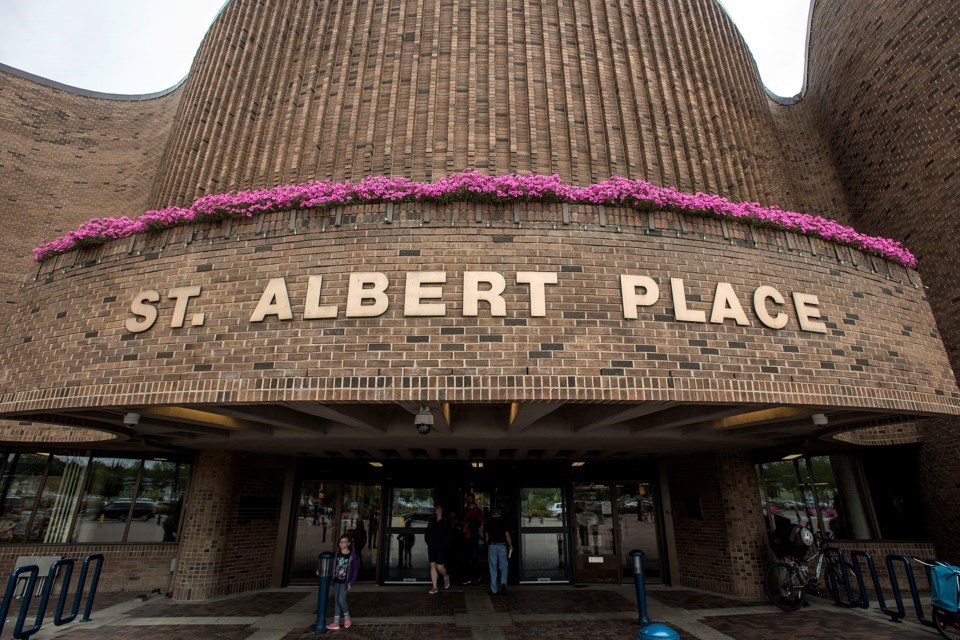St. Albert wants the provincial government to reverse a 2021 decision that led to higher interest rates on loans to municipalities and cost residents millions.
The policy change has the provincial government no longer granting municipalities access to below-market interest rates on loans for capital projects through the Alberta Treasury Board. The below-market loans had been offered for years under the Alberta Capital Finance Authority (ACFA), and prior to 2002, under the Alberta Municipal Financing Corporation.
The ACFA was disbanded in 2020 and replaced by the Loans to Local Authorities Office, which is operated by the provincial government.
At the beginning of 2021, a municipality could get a 10-year loan with an interest rate of 1.3 per cent. A year later, after the provincial government's policy change, a 10-year loan carried an interest rate of 2.82 per cent.
A 10-year loan at the beginning of 2023 came with an interest rate of 4.82 per cent, and the province's most recently published 10-year loan interest rate is 5.18 per cent, which is the highest rate for that term since December 2003, according to the province's own data.
At the time of the policy change, then-finance minister Travis Toews told LiveWire Calgary the “relatively modest change” was a result of the government re-evaluating its risk exposure during “fiscal uncertainties” caused by the COVID-19 pandemic.
As part of its advocacy initiative, the City of St. Albert seeks the backing of Alberta Municipalities (ABmunis) through a resolution vote during ABmuni's annual conference in September.
According to the city's resolution, which is included in ABmuni's 2023 Resolution Book published earlier this month, having the provincial government reverse the 2021 policy change would “allow for improved financial flexibility to encourage municipalities to fund capital projects and save taxpayer dollars.”
“In 2022, the City of St. Albert needed to obtain ... loans to finance three capital projects critical to economic growth and sustainable development of essential infrastructure,” the resolution reads. “At the end of payment terms for these loans, St. Albert taxpayers will have paid $12.75 million in interest payments.”
“Had the Government of Alberta restored the previous policy of offering loans with interest rates that are available to the government itself ... St. Albert taxpayers would pay ($11.27 million) in interest at the end of the payment term, equating to a savings of over $1.48 million.”
“These savings will instead be received by the Government of Alberta as a revenue stream.”
In an interview, ABmunis president and St. Albert Mayor Cathy Heron, said she wants to be clear that the city isn't asking for no-interest loans, just below-market interest rates like those accessible prior to late 2021.
“I think we need to work together to try to still make the province some money, but save the property owners some of (those) interest costs,” Heron said. She added since the province's interest rates are closer to market averages, municipalities like St. Albert may start taking out loans through traditional banks, such as Toronto-Dominion (TD) Bank.
“When you borrow from the provincial government, they actually put a lot of restrictions on the loan, (such as) penalties for paying off debts early,” she said. “Instead of borrowing from the province, why don't we just go to the TD Bank or ATB, because at market rates ... some of the loans there are much more user-friendly.”
“So if you do get a surplus one year we could put it all towards debt, but we never do that because the province's penalties are so large.”
The resolution also argues given the provincial government had a budget surplus of $10.4 billion in 2022-23, and has budgeted for another $2.4 billion surplus this fiscal year, “the province is in a position where the charging of higher interest rates to municipalities is unnecessary for its own fiscal health, and instead levies increased pressure on municipalities who rely on loans to fund capital projects.”
“Should the ministry of treasury board and finance take measures to restore the policy of issuing loans with interest rates similar to those available to the province more capital projects may receive municipal approval, more infrastructure will be built, more local jobs will be created, taxpayer dollars will be saved, and Albertans will see increased growth and economic prosperity in their communities,” the resolution states.
If the province was to reverse the 2021 policy change, Heron said she didn't think it would have a major effect on St. Albert's current long-term debt crunch; however, it would reduce debt-servicing costs for projects such as the new recreation centre being planned west of North Ridge.
“We're always going to be pushing for a better interest rate because it's going to benefit everybody in the long run,” she said.
“How long are we going to say 'no' to the community amenities site? It's frustrating for us because we all want to do it, and it's necessary, but it's going to cost us a fortune.”
Treasury Board and finance senior press secretary Charlotte Taillon said in an email despite the 2021 policy change, the province still offers municipalities competitive interest rates.
“Alberta's government will continue with its disciplined spending approach and fiscal plan to create a sustainable future for this province by paying down debt and saving for future generations,” Taillon said.




